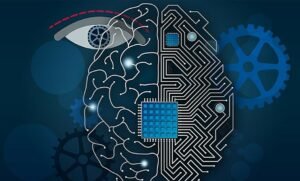AI Ethics: Ethical considerations and guidelines for the responsible development and use of AI systems.
Fairness and Bias: Addressing biases in AI algorithms and data to ensure fair treatment and equal opportunities for all individuals, irrespective of their gender, race, or other protected characteristics. Transparency and Explainability: Making AI systems transparent and providing explanations for their decisions to foster trust and accountability. This involves developing methods to understand and interpret how AI algorithms arrive at their conclusions.
Privacy and Data Protection: Protecting individuals’ personal data and ensuring that AI systems handle and process data in accordance with privacy regulations and user consent. Accountability and Responsibility: Determining who is responsible for the actions and consequences of AI systems and establishing mechanisms for accountability when harm or errors occur. Human-Centered Design: Designing AI systems that prioritize human well-being, safety, and autonomy. Ensuring that AI augments human capabilities rather than replacing or harming humans.
Robustness and Safety: Ensuring that AI systems are robust, reliable, and safe, especially in critical domains such as healthcare, transportation, and finance. Minimizing risks associated with system failures, adversarial attacks, or unintended consequences. Impact on Employment and Society: Considering the potential impact of AI on jobs, workforce displacement, and socioeconomic structures. Developing strategies to address the ethical implications and mitigate negative consequences.
Global and Cultural Perspectives: Recognizing that ethical considerations may vary across cultures and societies. Engaging in global dialogues to establish common ethical frameworks while respecting cultural diversity. Governance and Regulation: Establishing governance frameworks and regulations to guide the development and use of AI systems. This involves collaboration between policymakers, researchers, industry, and civil society.
Ethical Decision-Making and Ethical AI Frameworks: Developing frameworks and methodologies to guide ethical decision-making throughout the lifecycle of AI systems. This includes involving multidisciplinary expertise, conducting impact assessments, and engaging stakeholders. AI Ethics aims to ensure that AI systems are developed and deployed in a manner that aligns with societal values, respects fundamental rights, and contributes to the greater benefit of humanity. It requires interdisciplinary collaboration and ongoing discussions to address the complex ethical challenges posed by AI technologies.




































